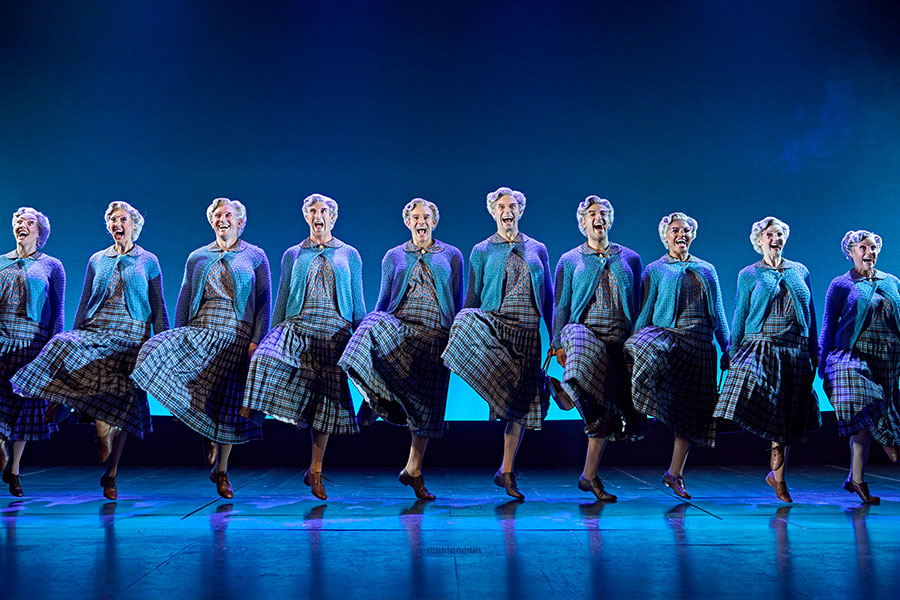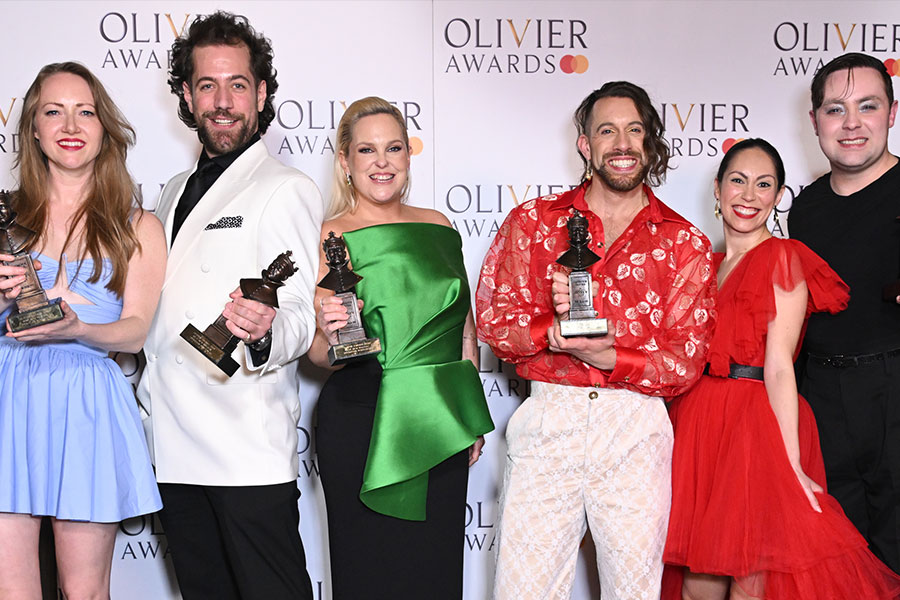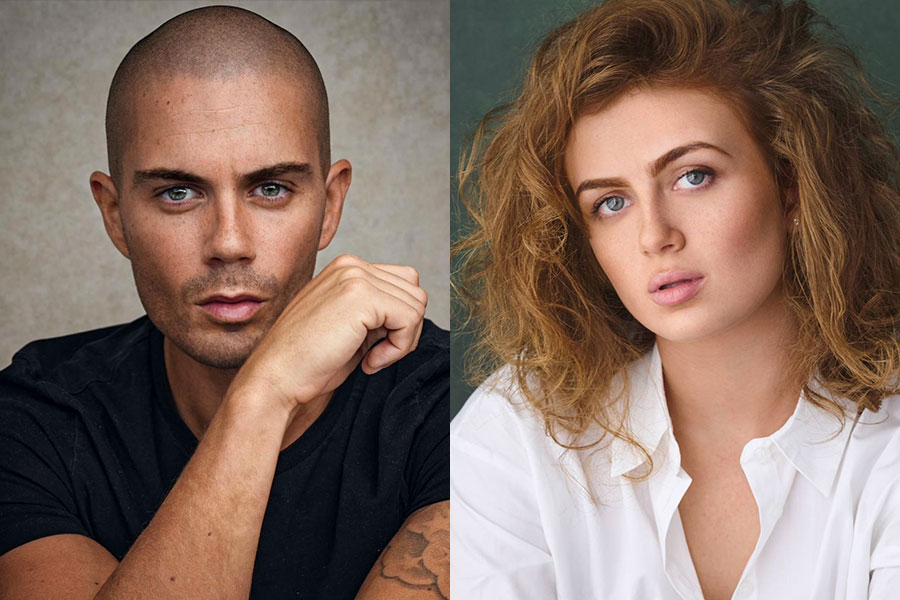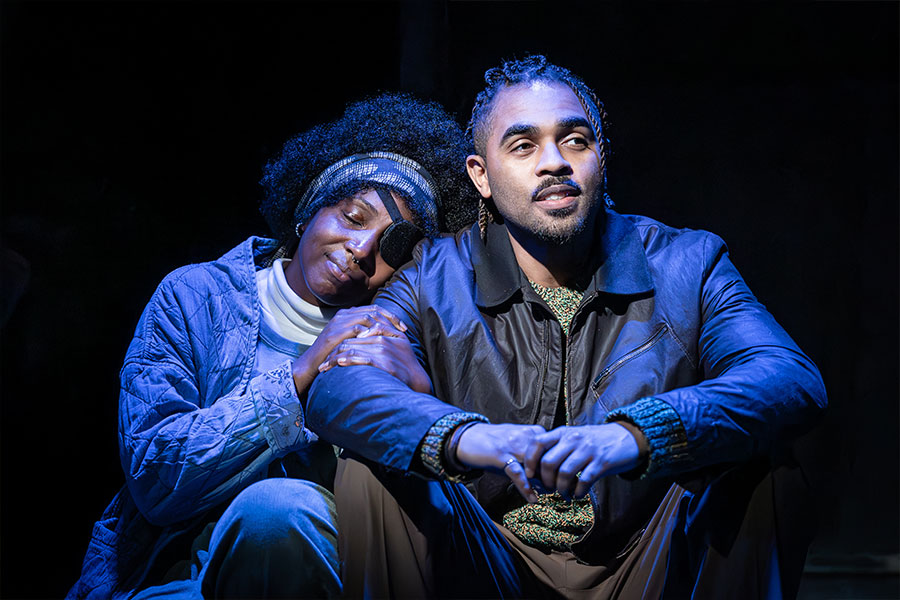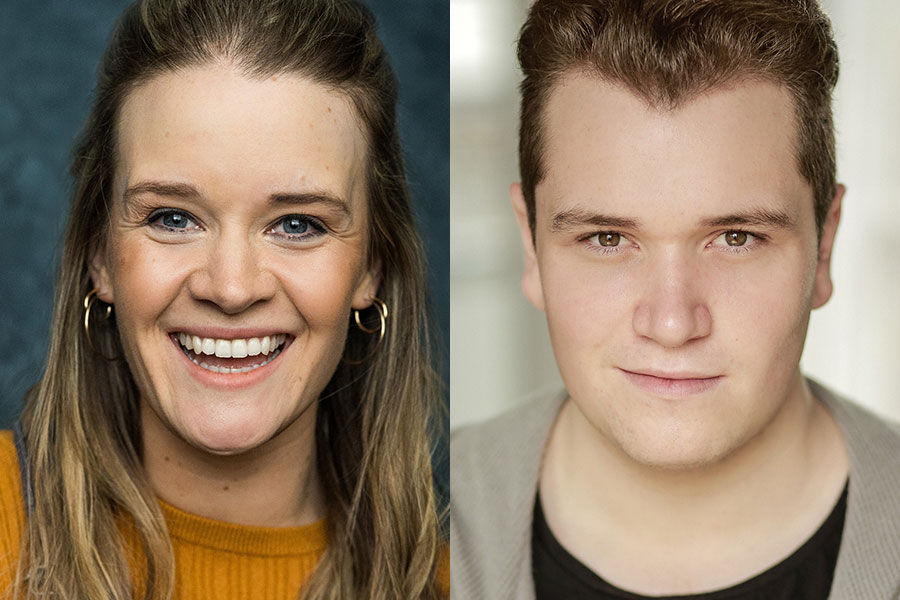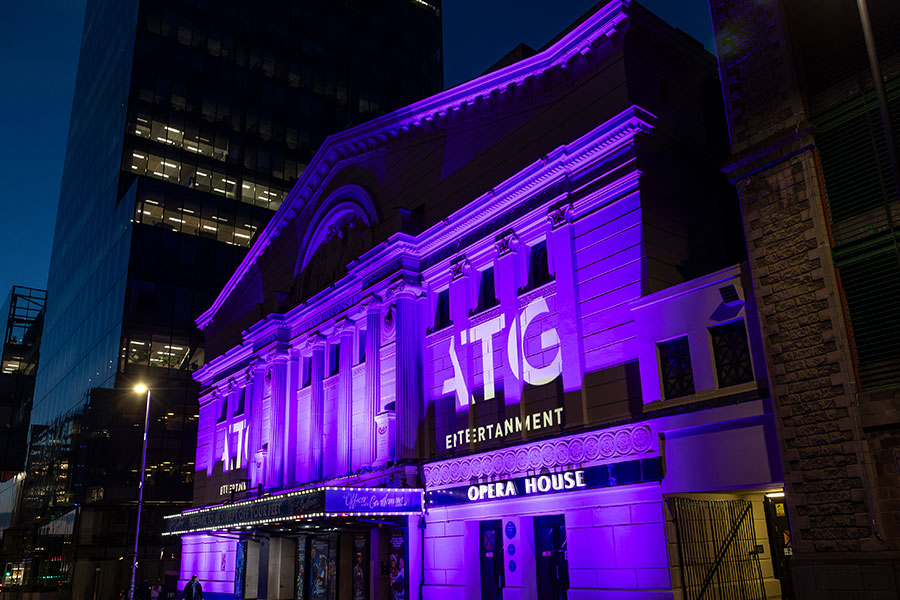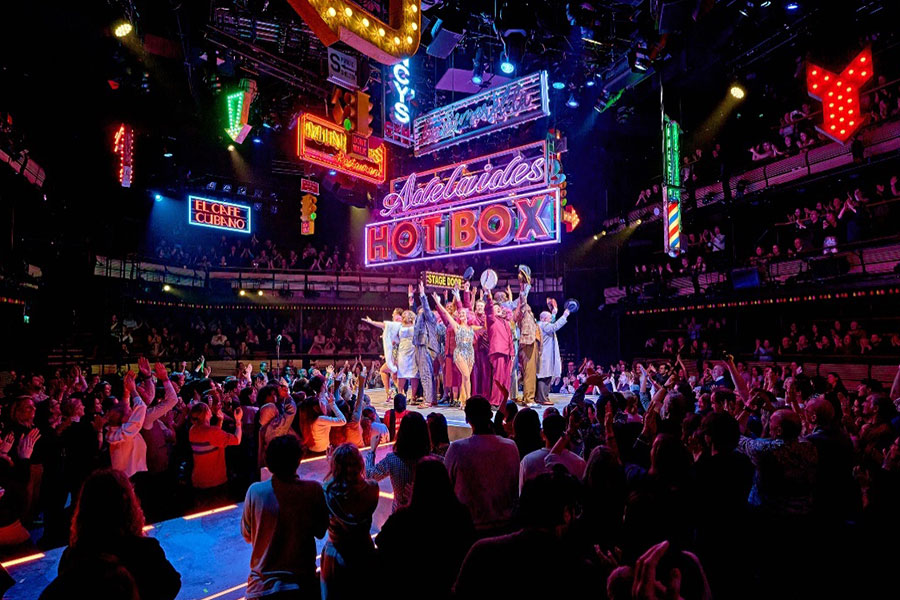Privates on Parade

Those leads are now deliciously taken by Simon Russell Beale and Angus Wright as, respectively, Acting Captain Terri Dennis and Major Flack, the first a blissfully camp cabaret turn of the sort Nichols knew at first hand in his own South East Asia unit alongside Kenneth Williams and Stanley Baxter, the second an absurd authority figure with an over-developed sense of patriotism as, in this period, Communism replaces Hitler as Public Enemy Number One.
The Commies, of course, are also “Johnny Foreigner”, which adds a spice of thinly disguised racism (“I won’t have uppity wogs on my patch” is all part of the army lingo) to the campaign; the barrack room antics are supervised by two silent Chinese servants (Sadao Ueda and Chris Chan) who provide the same ominous evolutionary footnote against a Singapore skyline as at the Donmar.
Otherwise, the show is played out in a dilapidated grey mansion designed by Christopher Oram and beautifully it by Paule Constable that signals a changing landscape back home. At this distance, the show business numbers, played out on a ramshackle interior stage, seem like a last bastion of male friendship before facing the homophobic chill back in Blighty.
The recital of letters home on a mission which ends in disaster provides a dramatic momentum skilfully negotiated without losing the fun of the “acts” themselves. A chorus line of khaki-clad, knobbly-kneed privates clears the stage for Russell Beale to deliver wonderfully observed pastiche renderings by composer Denis King of a cod-louche Marlene Dietrich, frumpy Vera Lynn, disdainful Coward and a so-pleased-to-be-here, shiny-lipped Carmen Miranda (“Come and have a gala, down in Guatemala”) with a fruit basket head-piece.
Russell Beale’s glorious, pigeon-plump Terri is a much softer reading than either Denis Quilley’s brawny original or Allam’s fruity swaggerer. His innate kindness gleams through the am-dram exterior of conspiratorial winks and statuesque poses. He’s an avuncular old queen but a darling uncle, too, intervening crucially in the central rites-of-passage experience of Nichols’s alter ego, Private Steven Flowers, touchingly done by Joseph Timms.
The fact that this is a pronouncedly gay production is underlined by a clothed heterosexual deflowering of Flowers (by Sophya Haque‘s gorgeous Welsh Eurasian, Sylvia Morgan; the girl was naked in the original production) and the extended male bottom-flaunting shower scenes; even Russell Beale does a cheeky revealing twirl.
Another key friendship develops between John Marquez‘s hard-bitten, hard-swearing Corporal Len Bonny and Harry Hepple‘s Lance Corporal Charles Bishop, charmingly summarised in their Bud Flanagan and Chesney Allen tribute song. It’s what makes the play finally so moving, still, the camaraderie of war embedded in the threatened cultural life of its pointless protagonists.




